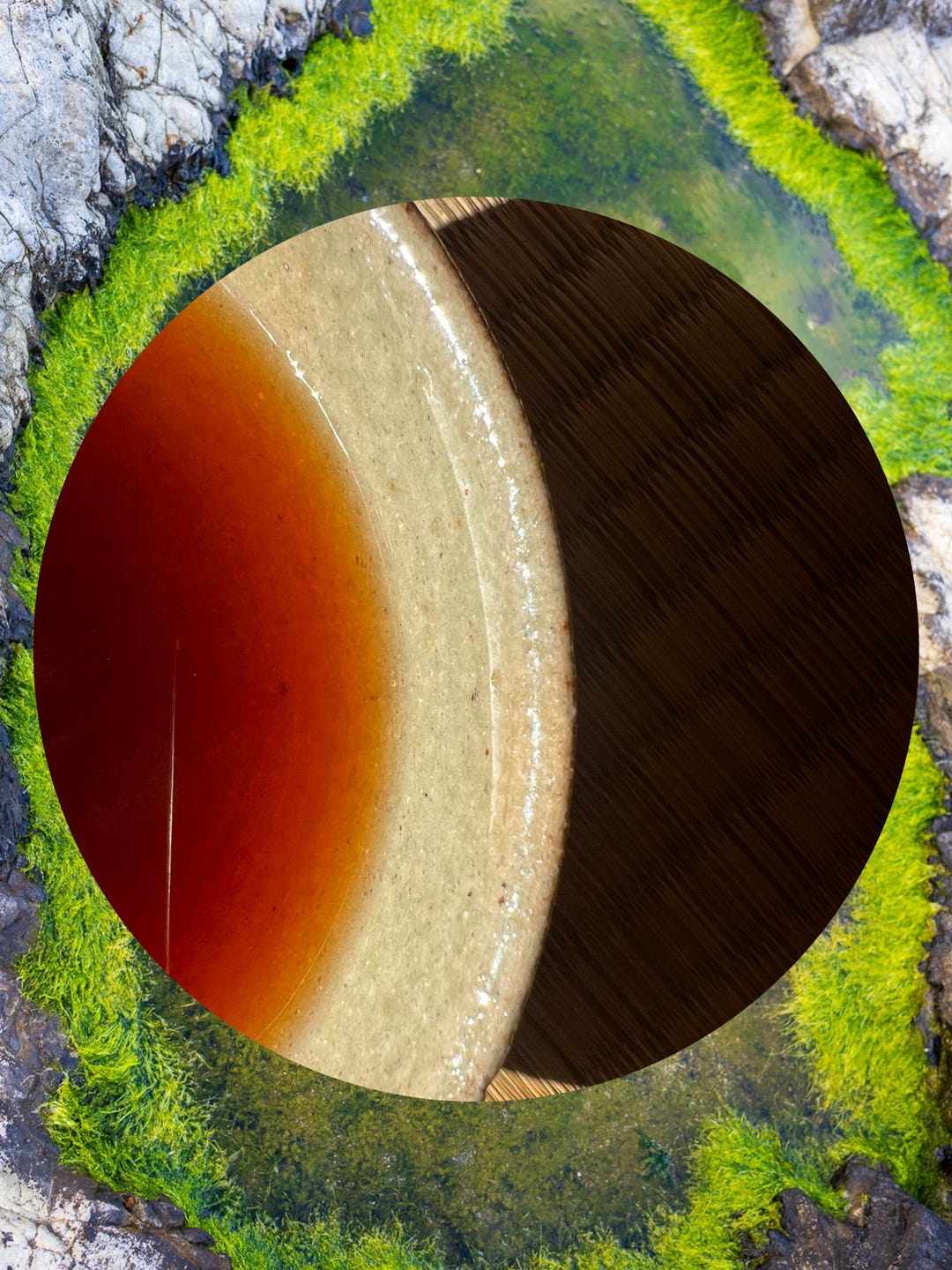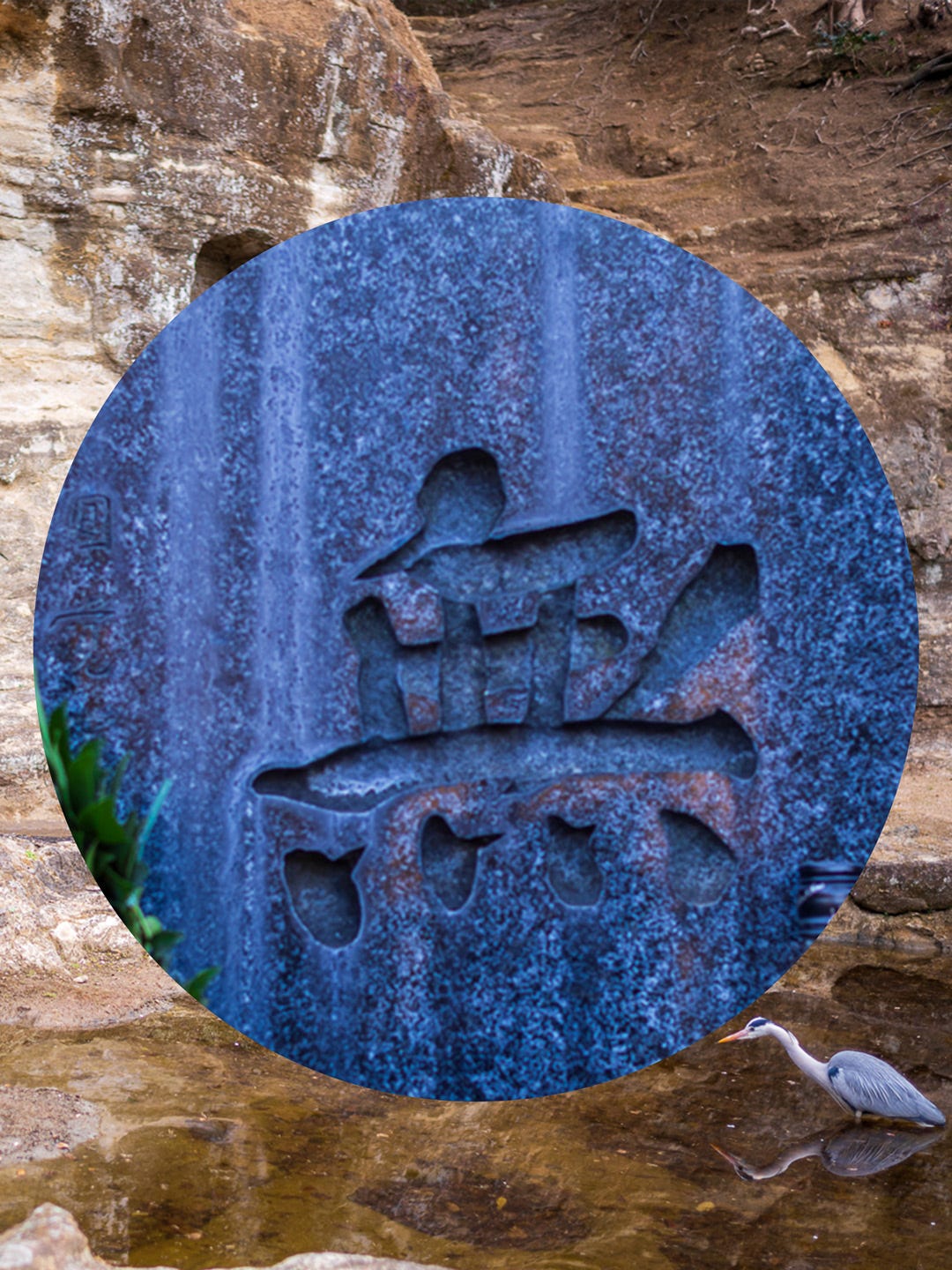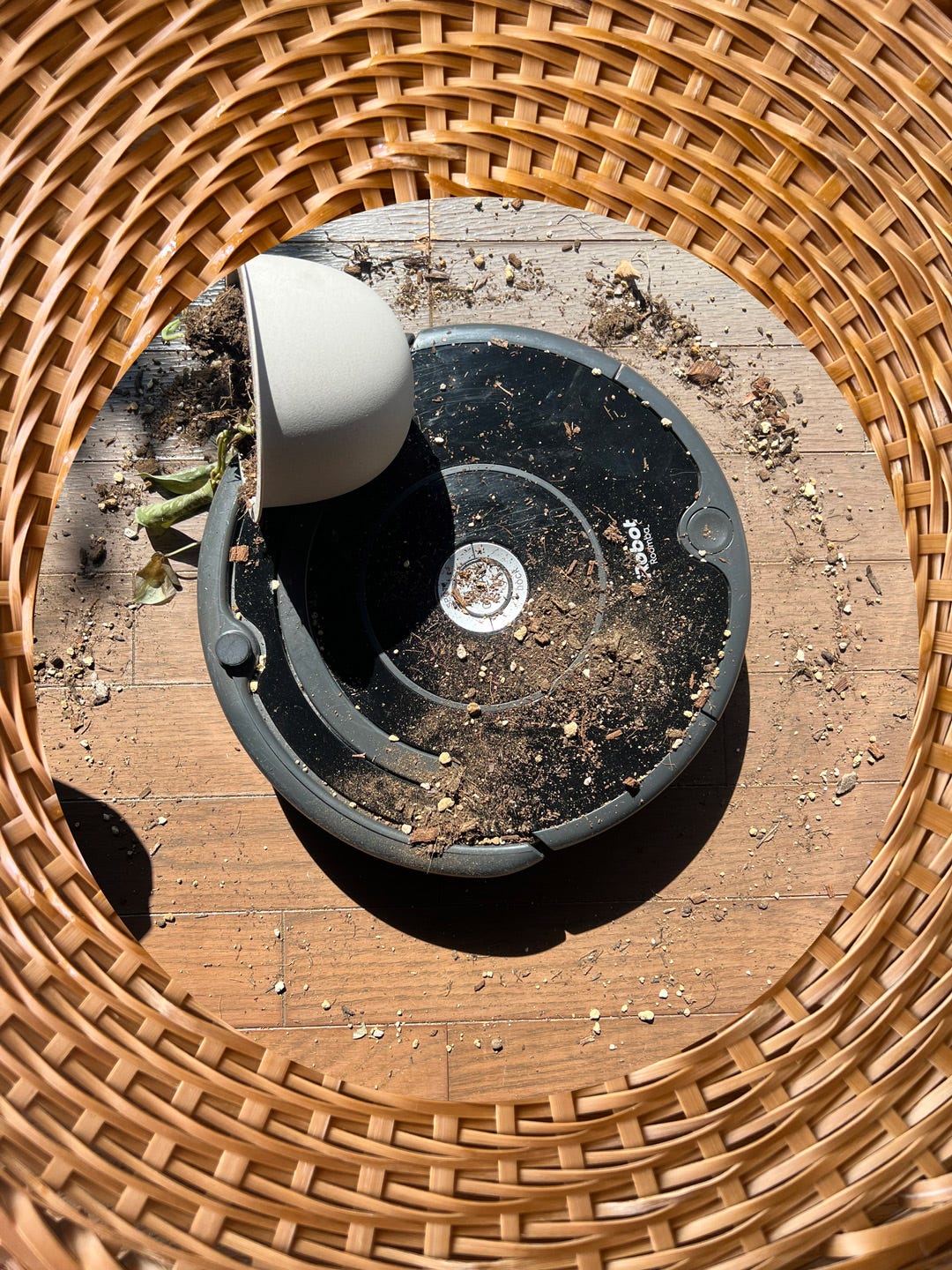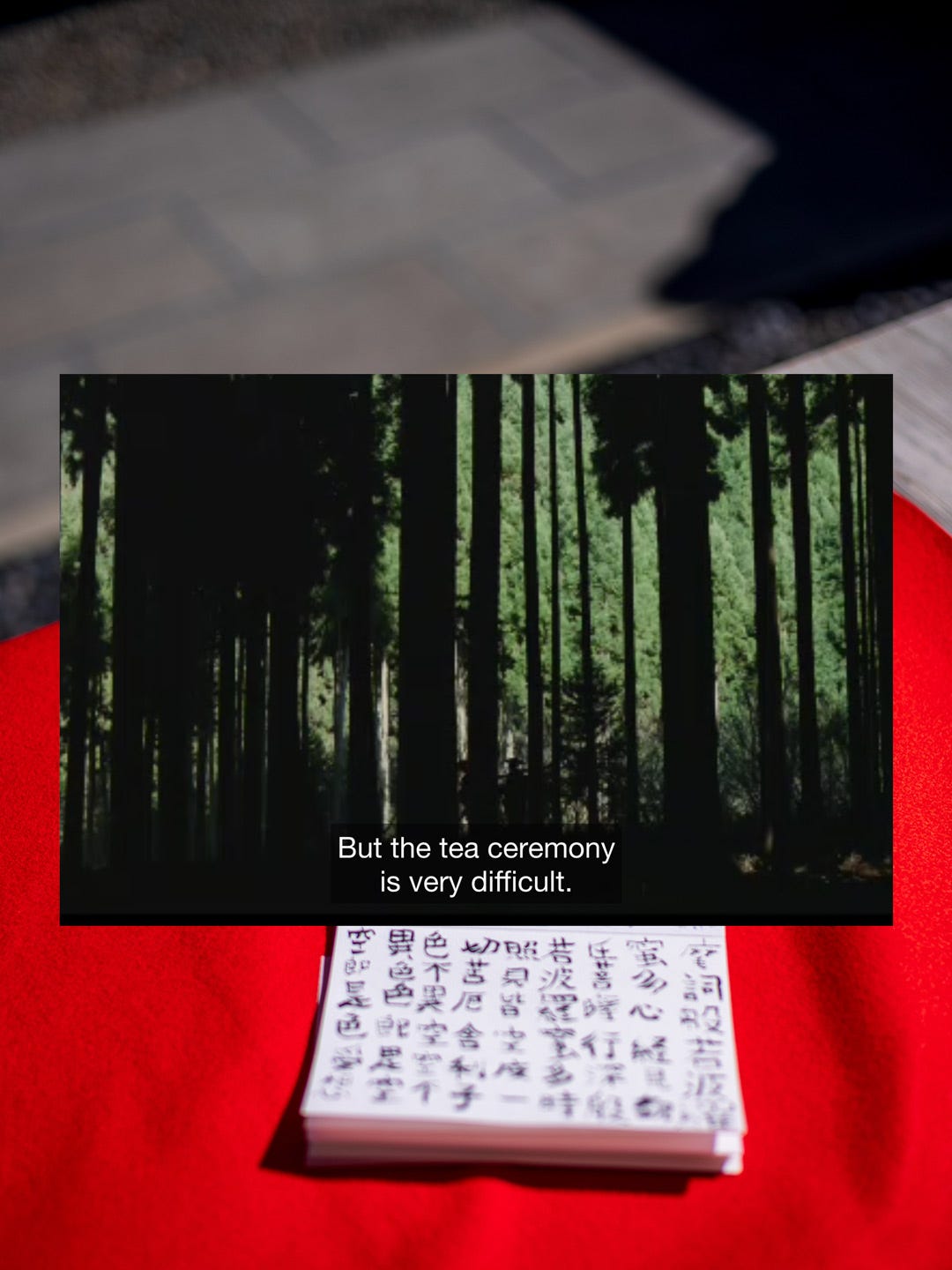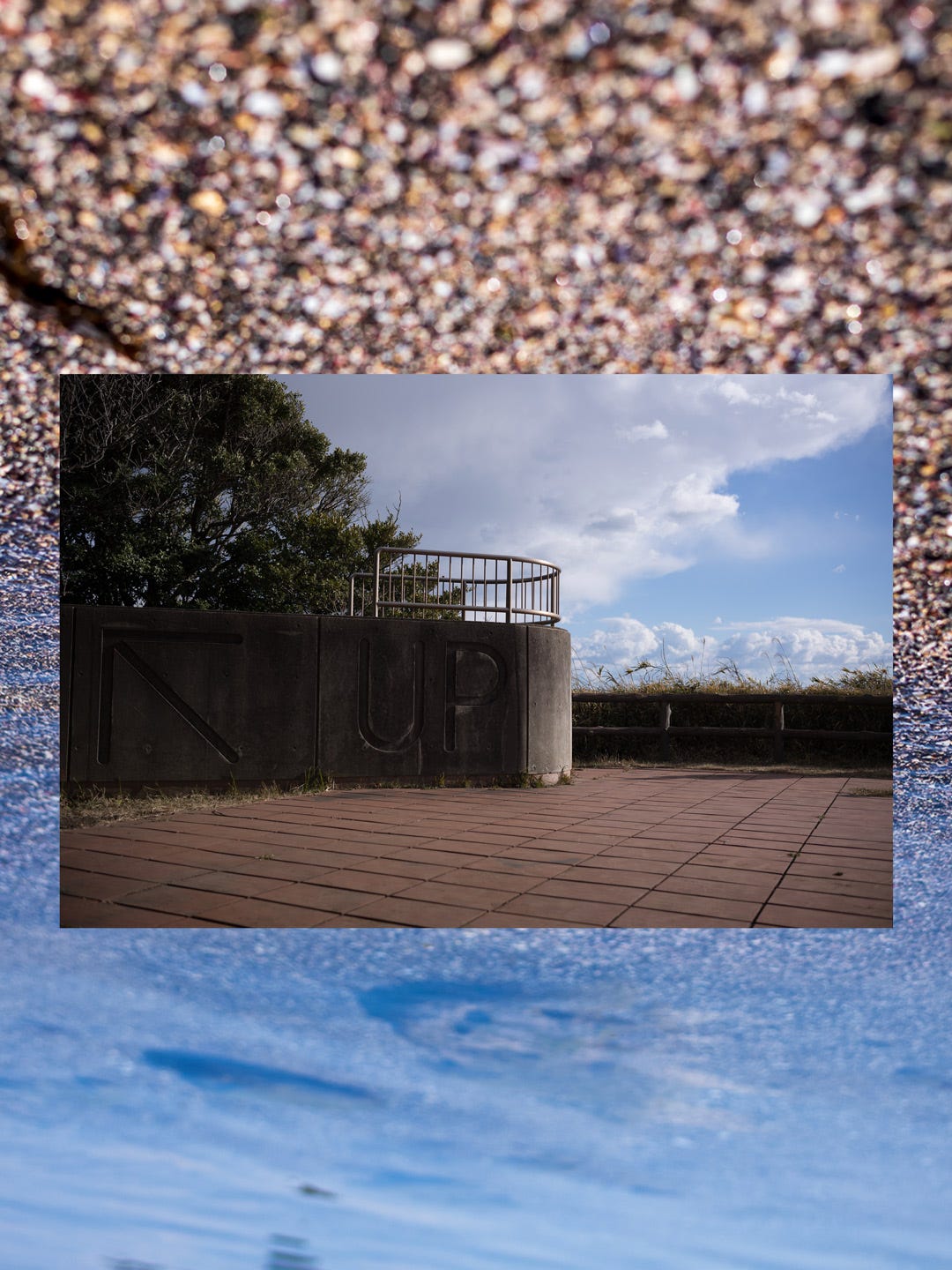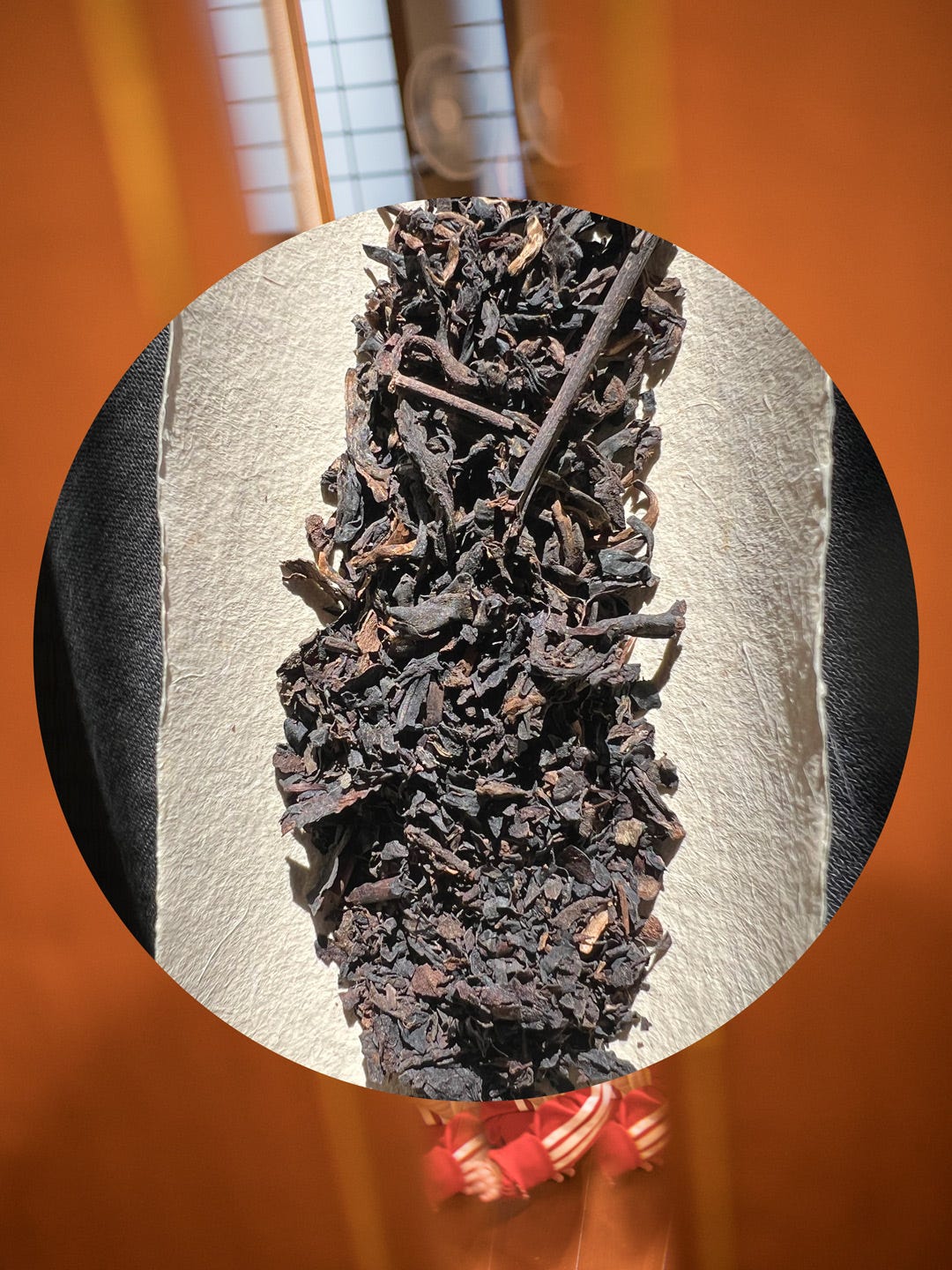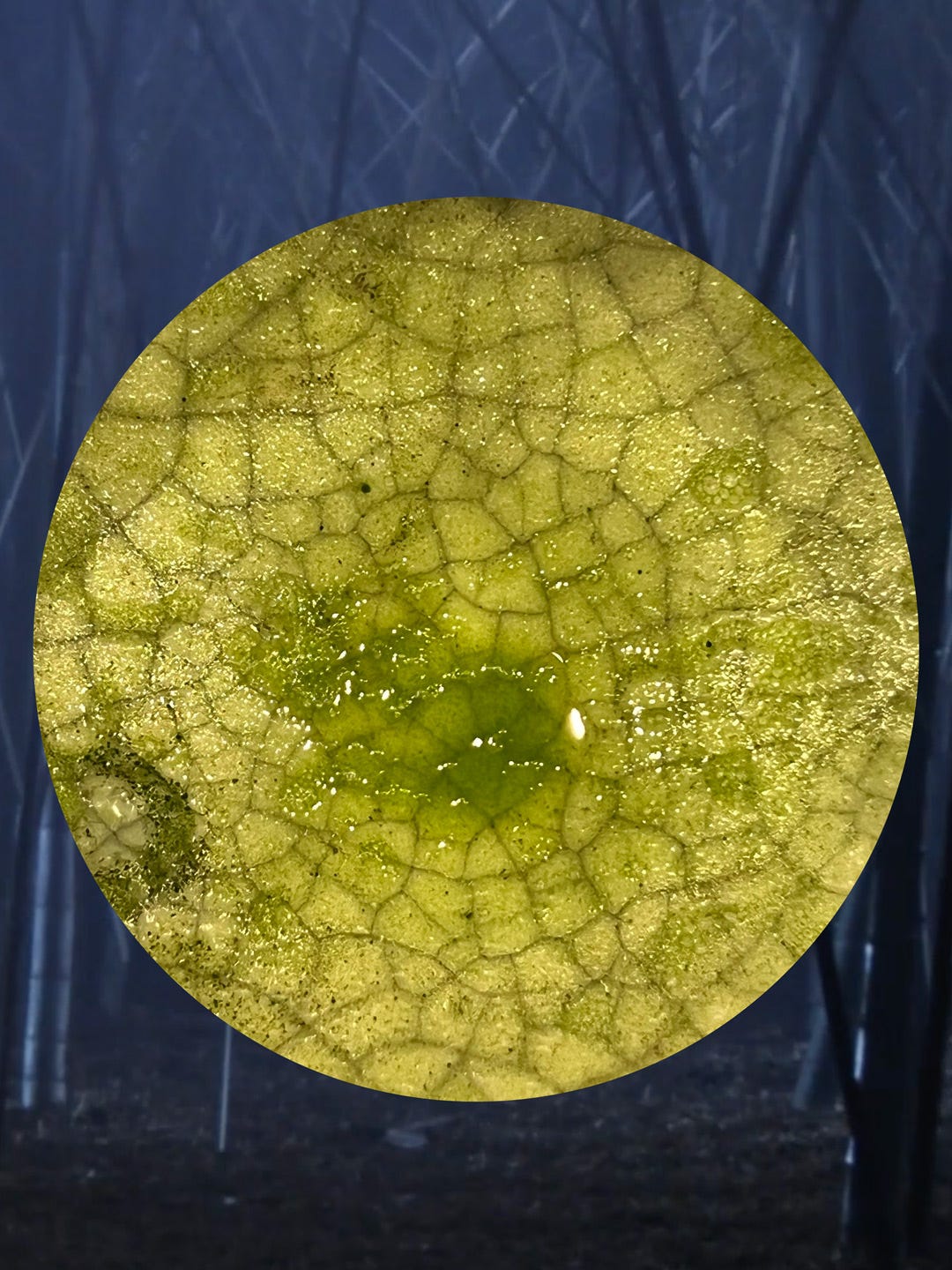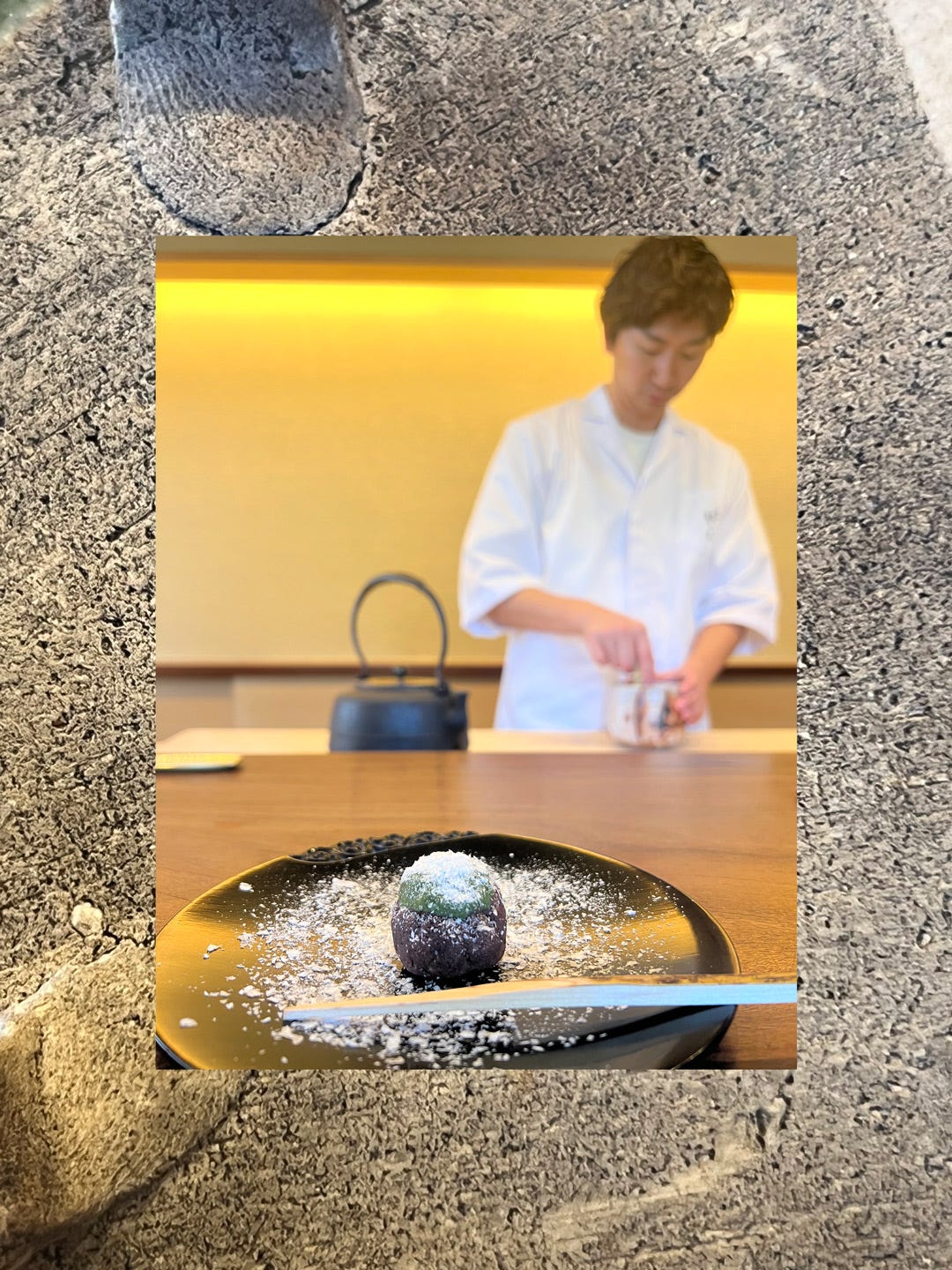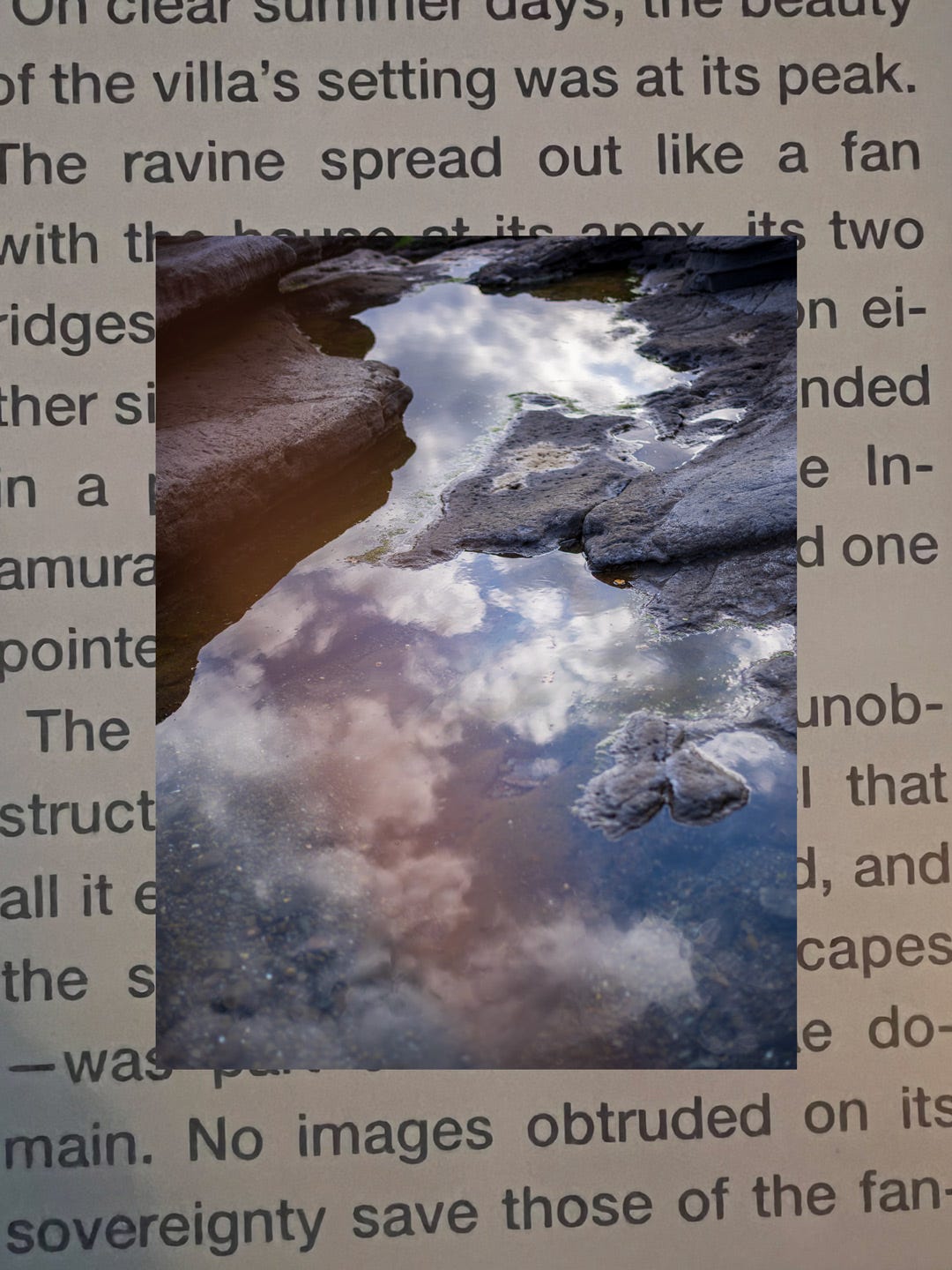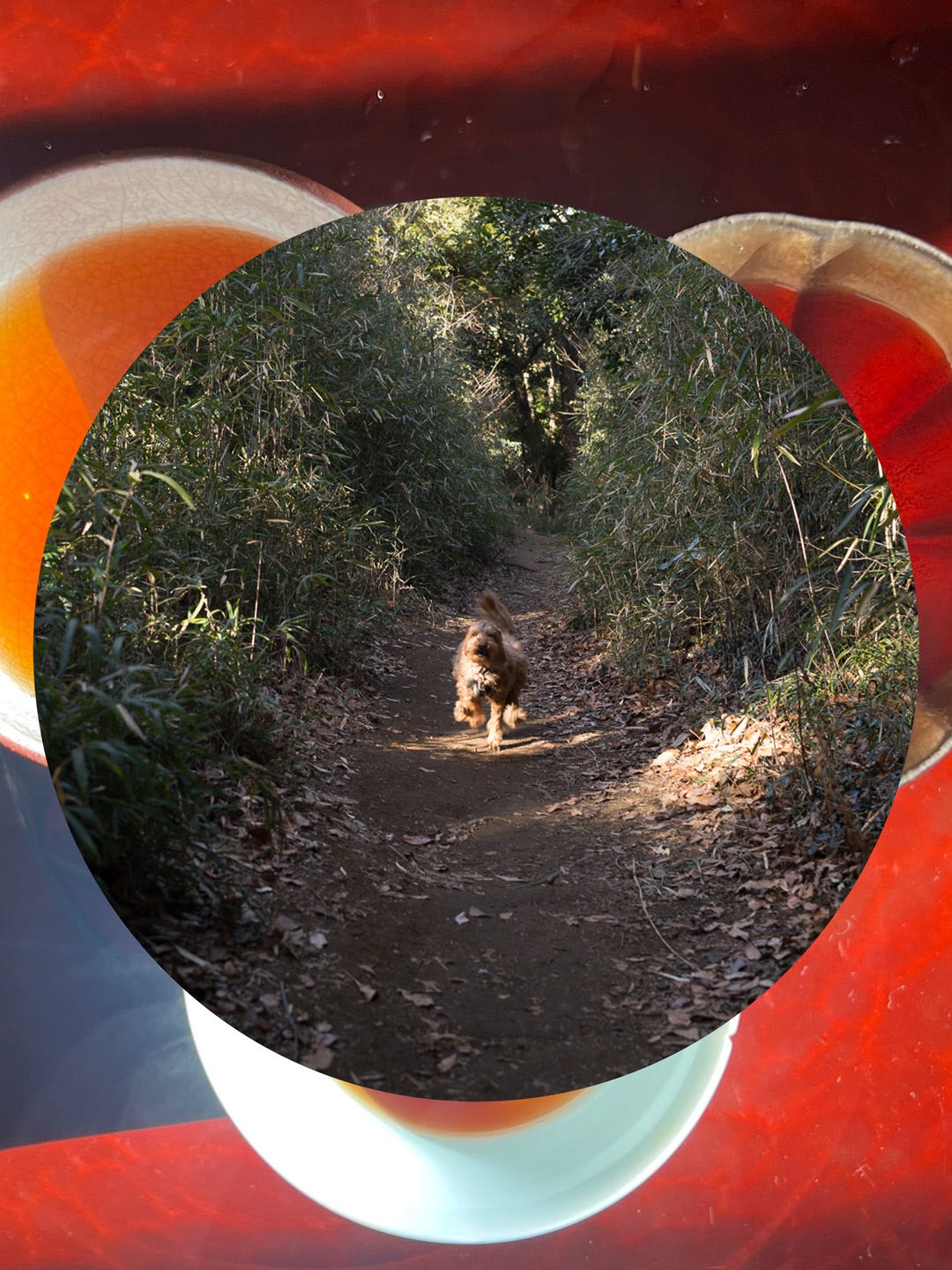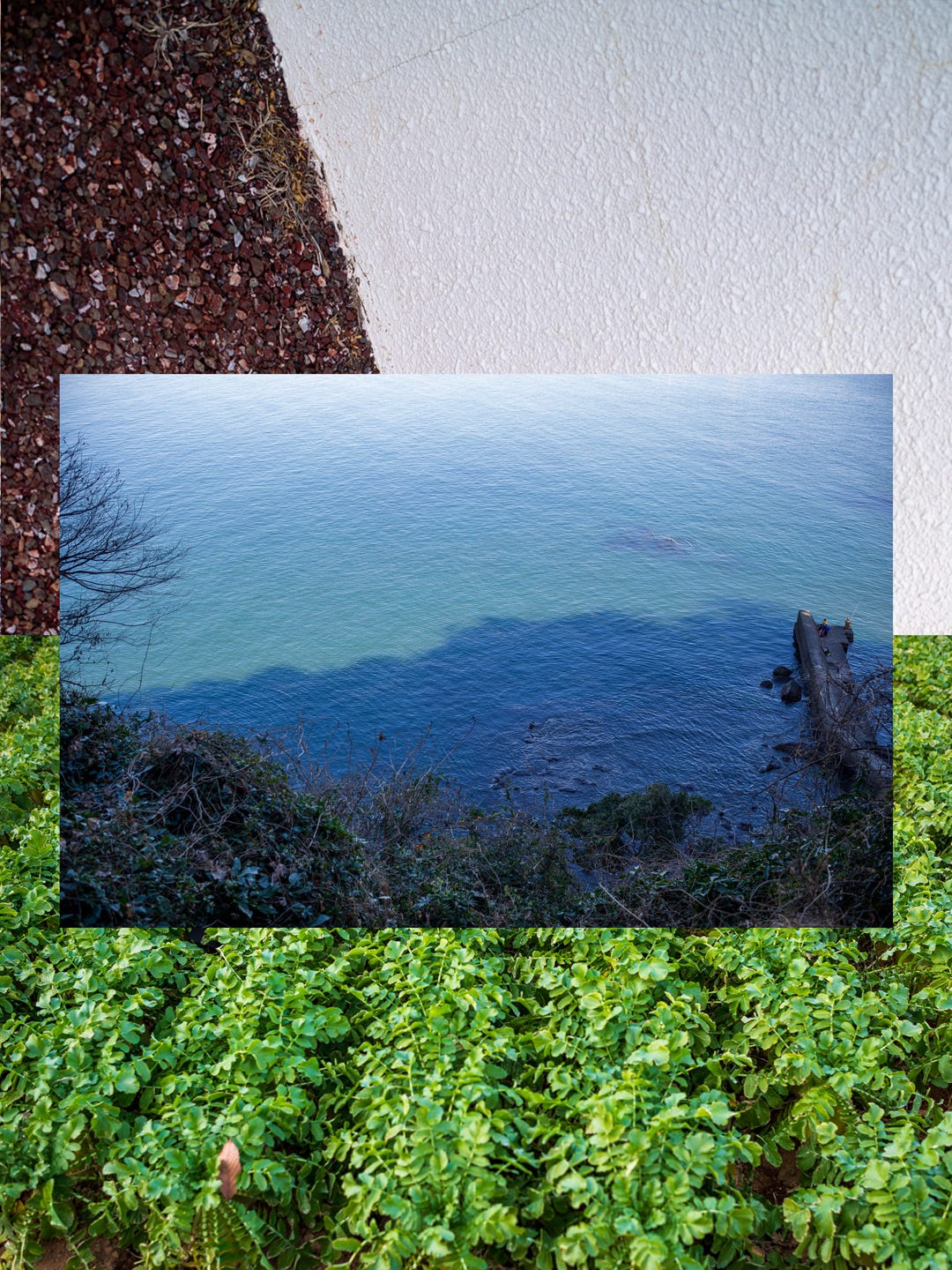Good Tea, Bad Names: Liu Bao Blends, Bends & Mends Me
In which a Tea In Japan Podcast begins to boil to life.
Careful. I’m all hopped up on a trifecta of Liu Bao and expecting nothing less than the best. Not just out of this steep. This day. But out of this life.
I’m sorry, dear readers, but we’ve reached the point where only the best will do.
I know what you’re asking. Dweez, you say, “Is that a sneaky little podcast audio file under the sleeves of your cashmere, tucked snug, mid-edit, on the desktop of your mind — as well as your actual laptop desktop?”
(Laptop Desktop! Ha!)
Why yes it is. Is it a tea podcast? Indeed. Will it soon be available to stimulate our meandering dog walks, laundry folding & begrudging commutes? It will. It must.
How else do you expect me to further prove how difficult it is to thrill an audience with an esoteric rabbit hole topic using those flimsy tools which are little more than cheap replacements (words) for the actual experience (drinking tea)?
If I may be so bold as to you ask you—directly and plainly—what would you want to hear in a Tea In Japan Podcast? Tea only? Tea-less? Life in Japan? In Kamakura? Esoteric minutia and deep cuts? Whatever, as they say, arises and passes away? Please slip me the prefs in the comments, in my inbox, or to my face if you see it now and then. Otherwise, I’ll be forced to study the moisture molecules in the steam out of my morning cuppas.
If nothing else, you’ll get to tune into another channel of my obsessive missive misgivings. If nothing else, I’ll get to capture the magic of my Kamakura tea room before it is collapsed by time and rental agreements—just as the fabled Budlong backyard was after over 100 episodes of FCFC, that never-say-die celebration of all things Los Angeles and World Football, where I cut my podcast teeth.
If nothing else, I’ll spend time committing to memory making in the fleshy collaborative places and spaces and faces I love. If nothing else, I’ll be exiting this phase of tea hermitage and edging closer to the phase where I build an entire rig and offer free tea to passersby. A dream I long had at Budlong and never fulfilled and that has now been revitalized by Lesson #5 of the GTH Boiled Tea Hut course in which an astounding traveling tea vessel is at full sail. The best I could do for a while was cold brew at tail gates. Now I bring cold brew and kombucha to writer’s salons. But, alas, there is simply not enough chances to serve tea to others at present. It just won’t do.
Have you asked yourself recently, dear reader, what is it you really really want out of life?
All I really really want to do right now is set up a boiling cauldron next to Pide—my dear Turkish-Dutch friends’ bakery down the street which, in its short three weeks of existence, has already become my favorite bakery of all time—and distribute tea out of an iron vat to anyone who is even slightly tea curious. If Beethoven lived on your block but baked instead of composed, would you also not betray your own composure, and, like Nichiren in our Omachi hood in medieval times, street preach your praises of bready salvation to any and all who who passersby, regardless of existing carbo-theisms (or for that matter carbo-atheisms)?
My adoration for Pide’s transportive masterpieces—gentle mudra-esque folds of cinnamon and cardamon, simit sesame halos, labyrinthine kimchi focaccias, and Nordic-sturdy unstanky sourdoughs—is such that I might flip the switch and turn this mother into “Bread w/ Dweez.” I dare you to try a single multi-textured morsel of fresh-out-the-oven Pide and try to convince me not to pull a Nervous Nils and scrap my next APOC modeling shoot in deference to the pursuit of culinary perfection (NN’s, for the record, is pizza).
Can it still be called an inside joke when you’re the only one who gets it? Or rather, should we reconsider the term ‘inside joke’ altogether as something only you can get?
Now that’s an inside job.
In any case, let’s reframe the more pressing question in a way I find more helpful at present: What is it that life really really wants out of us?
Is it to be patient with all our wonky wants? Even with our genuine needs? Expecting the best and getting it doesn’t mean all the time, right this minute. Does it? In fact, it may mean the opposite. The best takes its sweet time. Seeds need planting. Leaves require their seasons. Then, their harvest. Their process. Water has to be fetched. Coals need to warm. The cauldron needs to boil. The leaves need to return to be put to reawaken. The pot, the bowl—even these things need to be fashioned. Out of raw earth. Mixed. Sifted. Moulded. Then dried. Cooked. Dipped. Cooked again. Rested. And then all of that needs to be thrown away with a single whiff of whatever is coming out of the Pide oven.
Okay, fine, we’ll go back to tea.
Have you never thought of how much goes into a single steeping? You could say all of it—all of the muchness—goes into a steeping. All that has ever been. The entirety of existence leading to a single sip.
With that POV, put your lips up to this, comrades, and tell me it doesn’t hit different.
I’ve spent a long time learning to finish things. That’s what gets the bucks. The yucks. The knuckleheaded smothering hugs. But tea is an unfinished product. You still gotta brew it up and sip. Life too is unfinished. You gotta live it up and sip.
In both cases, best not to forget to leave time to run to the bathroom.
Today’s Menu:
Professional projects paused by political sea change in Kyiv. False alarm emergency room visits in Fujisawa. Quandaries surrounding the rehabilitation of the literarily thrashed word ‘ghost’ in the notebooks scattered over my newly cleared desk. Turning and falling and being completely dropped in violation of a trust fall pact. Ordering the last oyster at a grungy ramen place and getting got for 48 hours.
Are these problems? Challenges? Invitations?
Let’s go with the last one.
Receives envelope. Opens. Slides it out. Reads.
Often good teas have bad names. Blame language. Blame translation. Blame me, if it helps. And if it’s any further consolation, know that I couldn’t do any better. Neither could you.
Maybe numbers would do the trick?
Kinda works with Pu’erh. Like, “You freak the 7581 or 7542?” And, as Alba points out, there is the Shizu 7132 tea cultivar.
At least in the case of Pu’erh, these are year, recipe and factory numbers. Unfortunately they also kind of make you seem like an asshat if you use them too much. Like you are Dewey Decimaling your way into the dusty library so you can hog all the tea books to yoruself.
Maybe symbols offer better solution?
Like, “Have you had any of that “^^^?” Shit was fire.” “But how ‘bout the “(/)?”
We crave names. I know I do. We want so much information about something before we even drink it. But how much does that alter our perception or our experience of the thing? I used to dislike the teas sent out with my Global Tea Hut magazine subscription so much that I would toss them out. But with ample space and distance from the analytical mind—and a bit of not exactly looking at the names of the teas or other details—I began to enjoy them more. Haven’t thrown away a leaf in almost two years.
But—wait, Dweez—weren’t you just going on about ‘The Best’? Why bother with anything less than excellence? How many teacups do you even have left?
Touché.
And yet.
The magic of giving the comparative mind a little parking space on the property of my perception is that I’m able to—not just more fully, but astoundingly and astonishingly fully—enjoy whatever is parked in the cup in front of me.
Want proof? Take a sip of this:
The trifecta of Liu Bao in front of me has been matched with the following words: Star-Favored, Earthbound, Treasure Basket. Taken literally, to drink them in tandem is to travel through space, rest with your back in sunken dirt, and deep sea dive into the abyss below all at the same time. Fun fact: this trident of Neptune, Saturn and Old Mother Earth pierces the body more bone-deep if you can let it boil for four hours. But what’s that? Oh, you don’t have four hours? No sweat. Gongfu works too. How do I know? What do you think I’m doing as I write these words? Is it hard to brew tea and type at the same time? Well, when you are able to be in outer space, lost in the soily sauce and patrolling the ocean floor all at once, then clip-clapping on the keyboard while you click-clack your tea cups up and down from the Kamakura bori lacquerware tray ain’t nothin. Guess I was wrong. Guess sometimes we tear names down just to build them back up. Guess I had it backwards. If teas could name their brewers the same way brewers get to name their teas, maybe this trio would call me Evokeman 5000. And I’d say: you’re not wrong leafy poets. You’re not wrong indeed.
This tea name inquiry emerged when I visited Kitajima—my neighborhood kaiseki and arguably the best restaurant in Kamakura—for the half-dozenth time last month. They’ve now started to carry Royal Blue Tea. The self-professed vendor of “a new standard in luxury tea” cold brews and glass bottles their teas like a wine vendor. In fact, much of their brand is set to mimic wine and the restaurants, like Kitajima, that offer these teas are doing so as a wine alternative. I’ve been to the Royal Blue Tea flagship in Tokyo’s Rippongi neighborhood and I’ve tried their teas at several places. I can genuinely say they are delicious—albeit wayyyyy too expensive—and I believe they are a force for good in the tea world.
But, they are getting in their own way right from the jump. With names like “Fall In Love GRAND” and “Real Honey DELUXE” who is going to be thrilled about actually ordering these beverages?
“Give me the Real Honey….DELUXE.”
Kitajima himself brought it up.
“They are really delicious,” he said after I ordered a trio to pair with our lunch. “But their names are a little embarrassing.”
I agree, Chef. I agree. And may all delicious teas everywhere, someday, find names—or numbers or symbols—that don’t embarrass them Or, maybe, best yet, be served blind. Much like the way I wing my way through these recent sessions with you, dear readers.
With these monthly dispatches, so much falls through the cracks. So I don’t feel too guilty, I’m going to call it a practice of forgetting. I did finally finish Mishima’s Spring Snow, a book I found insufferable for the first half but by the time Kyoaki is marveling over the clouds in Kamakura I was all in and the book gave me a perspective about Japanese intimacy that had been perplexing me for a long time.
We’ve started to tour houses to buy here, which is complex and leads to me wanting to sit in my existing tearoom for as long as possible everyday since who knows when I’ll be lucky enough to have one in my home again. Yet another motivation for capturing the magic of the existing space in podcast form, at least. To invite listeners, as I’ve always tried to invite you readers, to sit for tea with me.
With far fewer visitors in town lately, we’ve been exploring the 50 Famous Views of Kanagawa, a series of extremely specific—like stone-tablet-set-at-specific-angles, specific—and rather isolated and obscure locations that were selected in the 1970s by some ostensibly well-adjusted scenery experts in the prefecture I call home. We’ve been getting pretty wild in tide pools around the Miura peninsula.
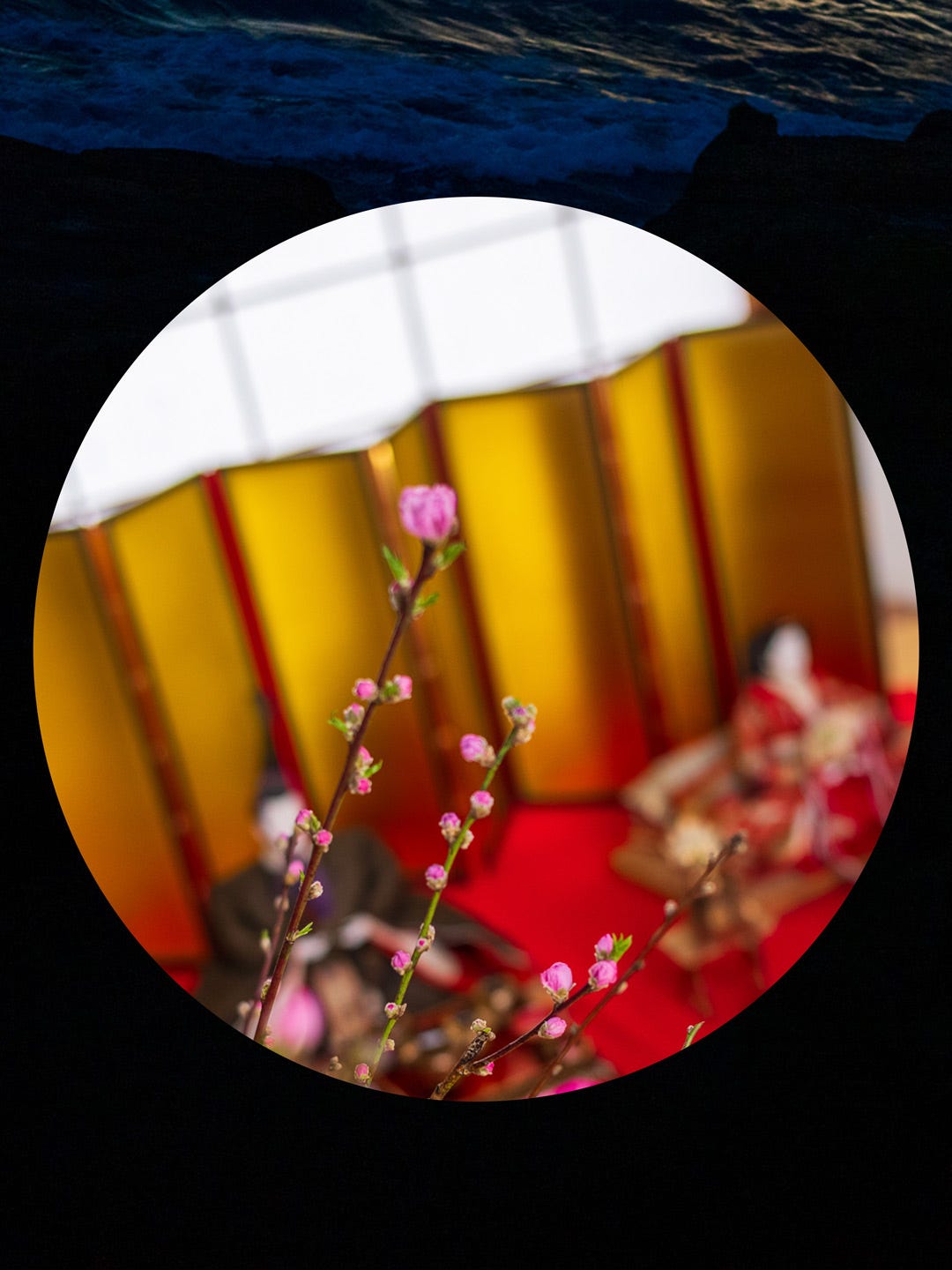
I’ve also continued to work on my slow-motion wheelessly crafted chawan with guidance from My Neighbor Sergio—hoping to fire it this week now that the rain has slowed. This month, I also basked in catching the double dragons lose their minds over their first glimpses—and my first glimpse, in Kamakura at least, of snowfall. Toasted to a chai tea at Big Love in honor of my brother Sean, who calls the record ship in Harajuku his favorite. Reveled in the 1984 film Rikyu.
Crossed the 20,000 word threshold in the new novel draft. My dog, Hoji Kun, turned 5. And I bought my first chagama from an antique store next to Kitakamkura Station—but more on that, and the podcasts, next time.
Until then, enjoy me falling down the stairs trying to hold up these rule bendy haiku in the same hand that I juggle three tea cups in a gongfu expirment.
Forgive me for always wanting to do it all. Too much. The good news? I’ve already gone ahead and forgiven myself. Couldn’t recommend it more.
My recitation of Rikyu’s rifle bookended by a tide pool symphony.
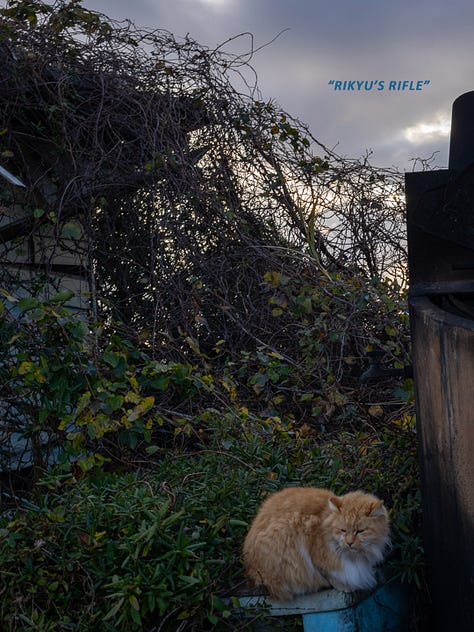
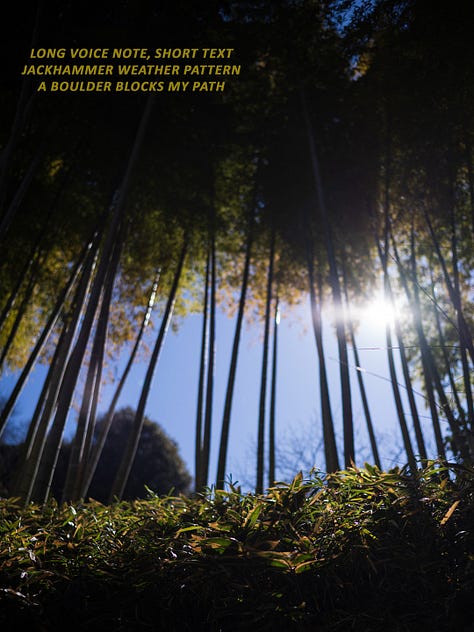
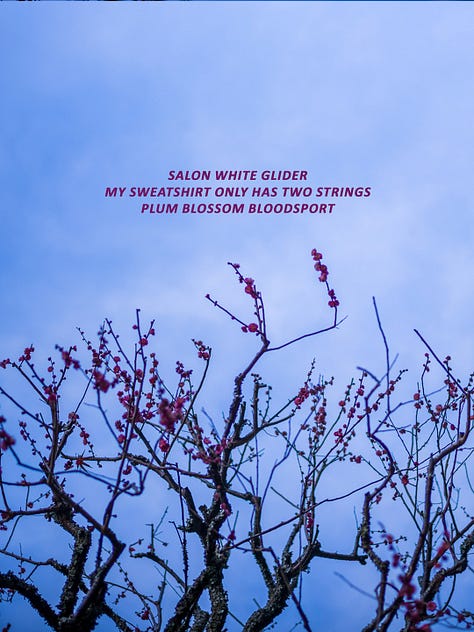

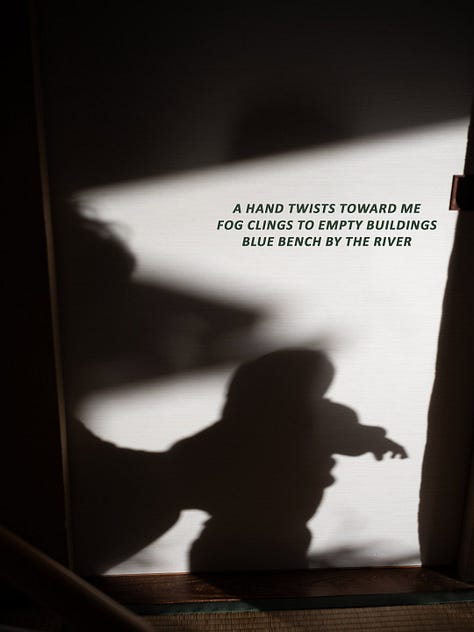
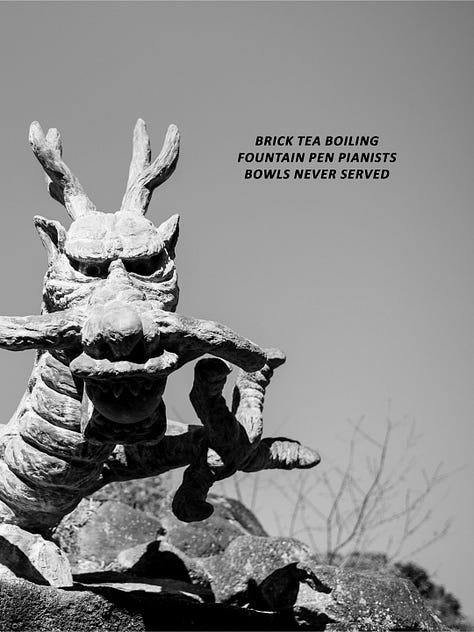

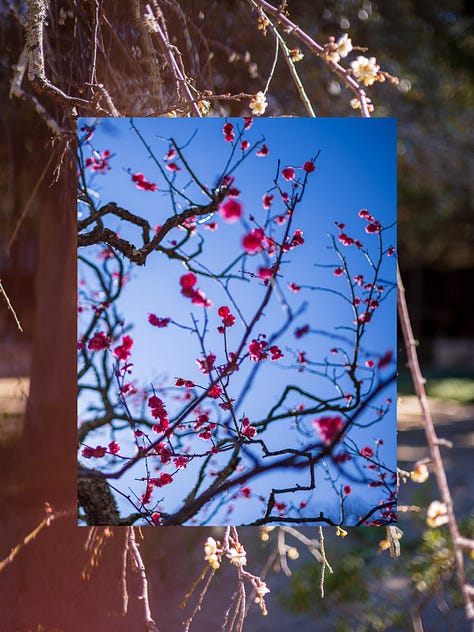

Rikyu’s Rifle
Long voice note, short text
Jackhammer weather pattern
A boulder blocks my path
Salon white glider
Sweatshirts only have two strings
Plum blossom bloodsport
In seas of fertility
Sandcastles stand forever
Intent on freezing
A hand twists toward me
Fog clings to empty buildings
Blue bench by the river
Brick tea boiling
Fountain pen pianists
Bowls never served
Demon speed seasons
This teapot kills spaceships
Slow As Possible



